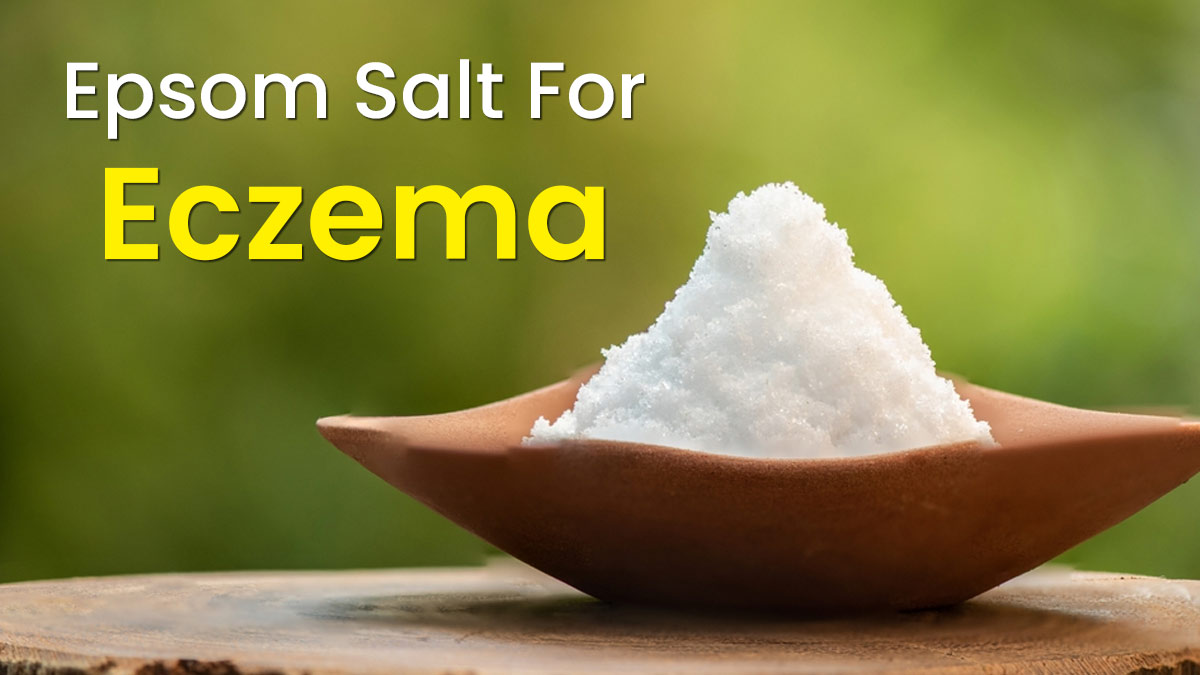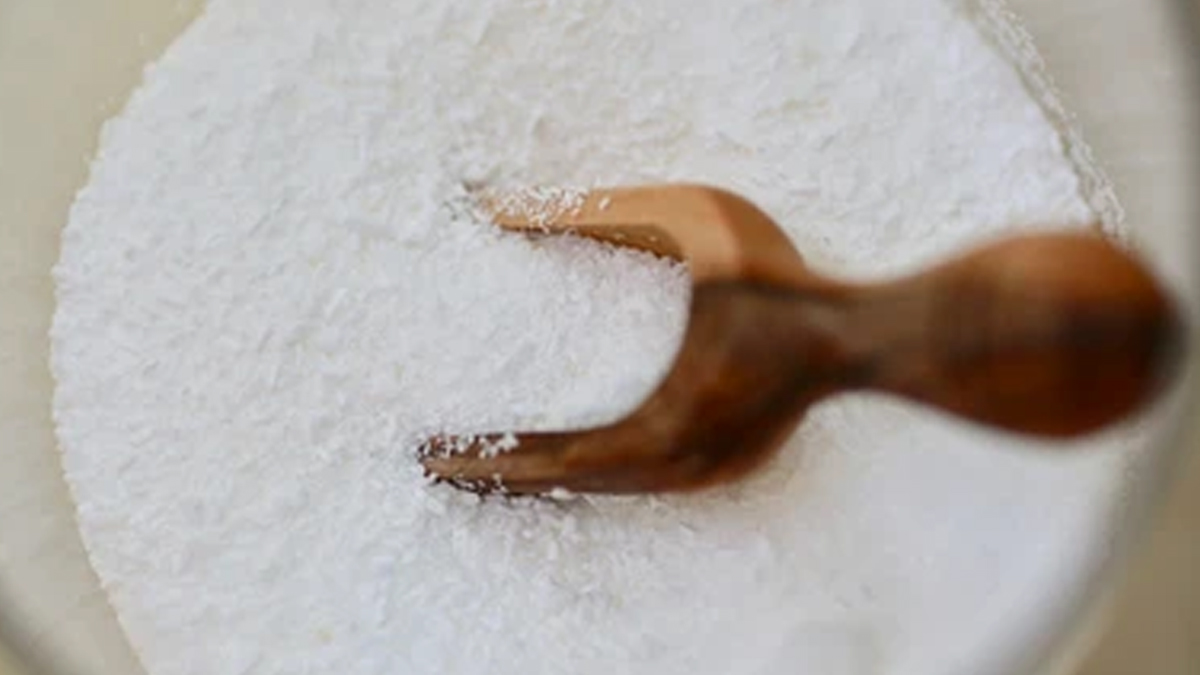
People dealing with eczema, which is a chronic skin condition, have difficulty managing it. This is because it requires careful attention to skincare routines and the use of appropriate treatments to soothe and heal the skin. If you are looking for natural remedies that can help in managing this condition, here's Epsom salt to the rescue. In this article, we list the benefits, uses, and more about Epsom salt for eczema.
Table of Content:-
According to StatPearls, eczema, also referred to as atopic dermatitis, is the most common type of dermatitis. Its development is believed to be influenced by both genetic and environmental factors. Individuals with eczema often have dry, itchy skin that is susceptible to infection.
What is Epsom Salt?

Epsom salt, scientifically identified as magnesium sulphate, is a naturally occurring mineral. Unlike table salt, it is not intended for consumption but is valued for its therapeutic properties. It has been used to relieve pain, reduce inflammation, and promote relaxation for ages.
Also Read: Dealing With Eczema Scars? Expert Lists Its Causes, Treatment, And Prevention Measures
Benefits of Epsom Salt for Eczema

Anti-Inflammatory Properties
Epsom salt possesses anti-inflammatory properties that can help diminish the redness and swelling associated with eczema. The magnesium in Epsom salt can assist in regulating inflammatory responses in the skin, offering relief from irritation and discomfort.
Exfoliation
Epsom salt functions as a gentle exfoliant, aiding in the removal of dead skin cells and promoting the regeneration of healthy skin. Consistent exfoliation can help prevent the accumulation of dry, flaky skin that frequently accompanies eczema.
Moisture Retention
Epsom salt baths have been found to enhance the skin's ability to retain moisture. Magnesium sulphate can improve the skin barrier function, reducing water loss and helping the skin stay hydrated for longer periods.

Itch Relief
Eczema can cause intense itching, one of its most distressing symptoms. Epsom salt can offer temporary relief from itching, helping to soothe irritated skin and reduce the urge to scratch, which can worsen the condition.
Detoxification
Epsom salt baths are effective for skin detoxification as they can draw out impurities and toxins, which can reduce the overall stress on the skin and promote its natural healing mechanisms.
Also Read: Skin Rash Or Eczema? Expert Helps You Find Out The Difference
How to Use Epsom Salt for Eczema

Epsom Salt Baths
The most common way to use Epsom salt for eczema is by taking an Epsom salt bath. To prepare an Epsom salt bath, dissolve 1-2 cups of Epsom salt in a warm bath. Spend 10-15 minutes soaking in the bathtub. It is important to avoid hot water as it can exacerbate eczema symptoms. After the bath, gently pat the skin dry and apply a moisturiser to lock in hydration.
The National Eczema Association recommends that soaking in a bath followed immediately by moisturising is the most effective method for replenishing skin moisture.
Epsom Salt Compress
For targeted relief, you can even make an Epsom salt compress. Put 1-2 tablespoons of Epsom salt in a bowl of warm water and stir until dissolved. Soak a clean cloth in the solution, wring out the excess water, and apply the cloth to the affected areas of the skin. Leave it on for 15-20 minutes, then rinse with cool water and moisturise.
Epsom Salt Paste
Another method is to make a paste using Epsom salt and water. Mix Epsom salt with a small amount of water to form a thick paste. Apply the paste to the eczema-affected areas and leave it on for 15-20 minutes before rinsing off. This method can provide exfoliation and targeted relief.
Precautions and Considerations
While Epsom salt can offer relief for many people with eczema, it is important to keep a few precautions in mind:
- Patch Test: Before using Epsom salt on large areas of skin, perform a patch test to ensure you do not have a sensitivity or allergic reaction to it.
- Avoid Open Wounds: Do not use Epsom salt on broken or severely irritated skin, as it can cause stinging and further irritation.
- Consult a Doctor: If you have severe eczema or other underlying health conditions, consult with a healthcare provider before using Epsom salt as a treatment.
[Disclaimer: This article contains information for informational purposes only, hence, we advise you to consult your own professional if you are dealing with any health issues to avoid complications.]
Also watch this video
How we keep this article up to date:
We work with experts and keep a close eye on the latest in health and wellness. Whenever there is a new research or helpful information, we update our articles with accurate and useful advice.
Current Version